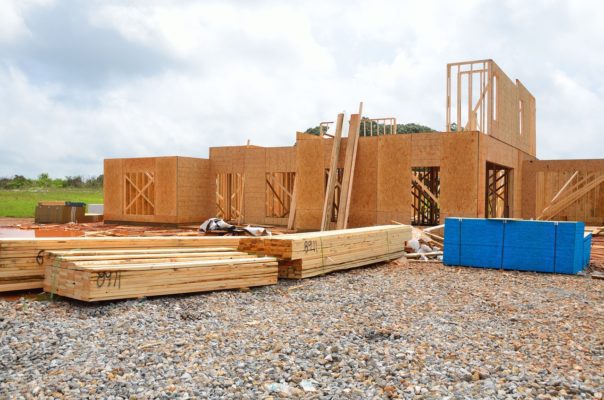It may seem like there should be a simple answer to this question, but actually, determining property taxes on new construction homes can be extremely complicated. While some people end up paying higher property taxes in the first year, there are also many cases where the first year property taxes can be much lower. Keep reading to learn more about what to expect from your Texas property tax bill on your new construction home.
When Do You Pay Taxes on a New Home?
In some cases, your first property tax payment can happen before you even close on your home. As part of some mortgage agreements, homeowners are usually required to pay the first year (or more) of property taxes as part of closing costs. In most cases, the seller of the home is responsible for the prorated amount of property taxes prior to your move in date, and you’re responsible for the amount after your move in date. If you move into a home in October, you may be required to pay property taxes for October through December plus a full year of home taxes as part of the closing costs. The reason for this is simple – whoever provides the mortgage on your home also pays the property taxes, so it’s in their best interest to start the mortgage agreement with cash in hand to cover these taxes. Because property taxes are often “due at signing,” the valuation of new construction properties is very important. Mortgagers need to know how much money should be reserved for these costs to protect their investment and yours. After the first year, the cost of property taxes is collected as part of monthly mortgage payments.
How Is the Value of New Construction Homes Appraised?
In many cases, new construction property taxes are appraised in a few different ways. Sale price is the obvious way to determine property taxes on new construction, and in some cases, this is the home value used by the appraisal district. However, most new construction homes are built in undeveloped parts of the community, and their sale value is based on the estimated cost of the new improvements. Unfortunately, this value isn’t always accurate for several years as more homes are built, landscaping installed, and the neighborhood is completely developed. In the meantime, new construction homeowners (and their mortgagers) often dispute using the sale price as the value of the home because the neighborhood is still under construction.
The other common option for determining the value of a new construction home is the cost approach. The cost approach is determined by asking, if the same house needed to be replaced, what would it cost? This number is added to the value of the land to determine the value of the new home. In many cases, this type of property valuation leads to much lower first year property taxes because the land value is based on an “undeveloped” property. Once more homes are built around you, the value of the land will go up as will the value of your new construction home.
Need Help with Your Property Tax Bill?
If you’re in need of help with your property tax bill, the knowledgeable professionals at Home Tax Solutions would love to help. Don’t hesitate to reach out to our offices, serving all 254 Texas counties. We’re here to help Texans fit the cost of property tax bills into their family’s budgets.



